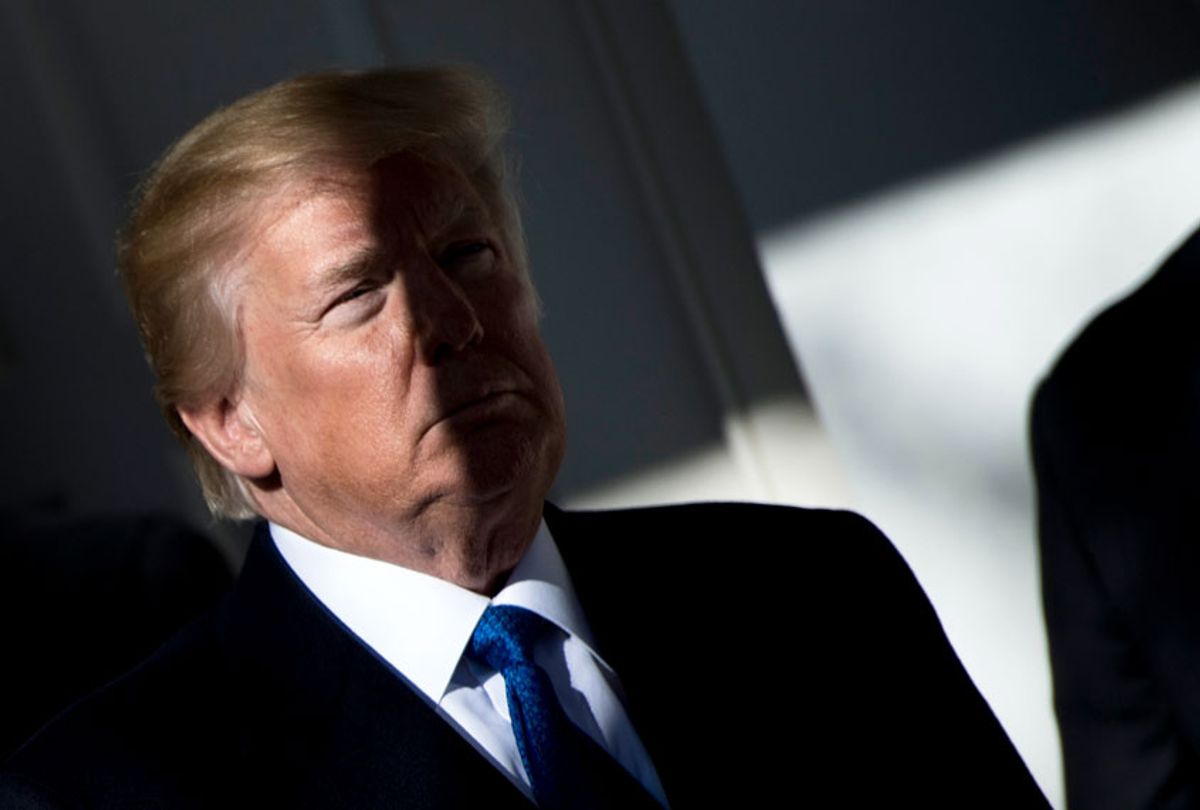We are a nation of many nationalities, many races, many religions -- bound together by a single unity, the unity of freedom and equality. Whoever seeks to set one nationality against another, seeks to degrade all nationalities. Whoever seeks to set one race against another seeks to enslave all races. Whoever seeks to set one religion against another, seeks to destroy all religion. — Franklin D. Roosevelt, November 1, 1940
One of the great responsibilities of high office is to set an example to others; to put aside one’s personal biases and prejudices and appeal to the highest level of one’s character as the first and foremost requirement of leadership.
Nowhere is this responsibility greater than in the office of the President of the United States. The President, after all, is not merely our head of government, he is also our head of state, and as such must strike a delicate balance between the rough and tumble of party politics and the need to promote and enhance American values. This responsibility becomes all the more daunting when we consider the fact that since the end of the Second World War, the United States has occupied the unique position as leader of the free world.
Having assumed this awesome responsibility, it has been the usual practice of our nation’s chief executives over the past seven decades to use the bully pulpit of the presidency to promote racial and religious tolerance, not only here at home, but also abroad. In May of 1959, for example, President Eisenhower noted his belief that if the United States Government “is going to be true to its own founding documents,” then it has the responsibility of “working toward that time when there is no discrimination made on such inconsequential reason as race, color, or religion.”
In more recent times, President George W. Bush noted that America’s identity as a nation, unlike other nations, “is not determined by geography or ethnicity, by soil or blood. This means that people from every race, religion, ethnicity can be full and equally American. It means that bigotry and white supremacy, in any form, is blasphemy against the American creed.”
Now that we have reached the first anniversary of Donald J. Trump’s first year in office, it is clear that he is the one president over the past seven decades who has unequivocally failed this test of leadership. Rather than use the privilege of high office as a means to summon up what Abraham Lincoln called “the better angels of our nature,” President Trump has used his office to appeal to humanity’s baser instincts — to the fear, xenophobia and racism that has all too often blotted our nation’s history. This propensity to the use of racial and religious slurs, most recently exemplified by his reference to Haiti — the first state in history to be born from a slave uprising — as a “s**thole nation” and to characterize Africa in the same way, is not only repulsive, it is also dangerous. It sews the seeds of bigotry and racially inspired violence here at home, and does enormous damage to America’s standing in the wider world.
This irresponsibility becomes all the more disturbing when we consider the precarious state of the world today: the decline of democracy and alarming slide towards outright autocracy in Russia, Turkey, Venezuela and other parts of the world; the re-emergence of ethno-nationalism in Europe, parts of Asia and even here in the United States; the threat to the environment posed by climate change; the on-going violence in the Middle East and risk of war on the Korean Peninsula; and of course, the ever-present danger posed by the advent of international terrorism.
Taken together, these threats represent a fundamental challenge to the liberal international order that was established under American leadership in the wake of the Great Depression and World War II. It was out of these twin crises that the United States rejected the isolationist doctrines of the 1930s and recognized — in many respects for the first time — that American security was tied to the security of other nations; that the social and economic well being of the American people was directly tied to the social and economic health of our neighbors around the globe; that it was vitally important, as FDR said in his last State of the Union address, to admit that international cooperation “is not a one-way street” and that “in a democratic world, as in a democratic nation, power must be linked with responsibility, and obliged to defend and justify itself within the framework of the general good.”
It is Trump’s failure to recognize this fundamental principle — that power must be linked with responsibility — that renders him so dangerous and makes it clear that he is temperamentally unfit to serve as President of the United States. Having abrogated his foremost responsibility, with untold consequences for America’s standing in the world, it is time for the American people and their representatives in Congress to speak with one voice: to reject Trump’s racist and religious bigotry as un-American and unacceptable.
In recent days, Cedric Richmond, the chair of the Congressional Black Caucus, has introduced a resolution to censure the President over his racist comments and to demand a retraction. This measure — which in essence is a call for Trump to live up to his responsibilities as head of state — deserves the support of both parties. Indeed, as we enter the second year of the Trump presidency, it is imperative to send a clear message to Trump that if he wishes to continue to represent the most diverse racial, ethnic and religious population on earth, then he needs to issue an apology to the nation and the world for his past conduct. The American people deserve no less.



Shares